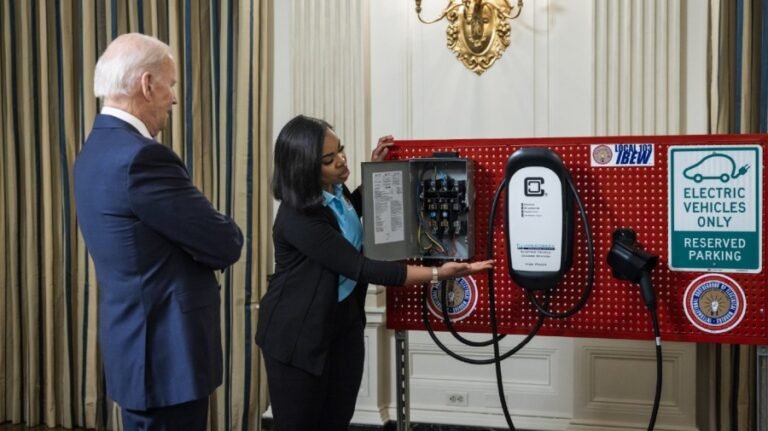
California’s existing groundwater infrastructure may fail to quench the state’s thirst in an increasingly arid future, even as officials celebrate widespread conservation achievements, Gov. Gavin Newsom (D) warned on Tuesday.
“The data doesn’t lie, and it is telling us that our water system is unprepared for California’s hotter and drier climate,” Newsom said in a statement.
The governor was referring to data published in a semiannual report by the California Department of Water Resources that morning. The report, which indicated California is collecting more groundwater data than ever before, showed a 2.2 million acre-foot increase in storage last year.
Nonetheless, the governor’s office stressed that the Golden State still lacks adequate water infrastructure to provide Californians with the resources they will need in future projected climate conditions.
The 2.2 million acre-foot surge in storage reflects the implementation of proactive conservation measures, such as capturing and recharging flows during winter storms, expanding recharge basins, improving monitoring and reducing groundwater pumping across agencies. For reference, the average U.S. household consumes about half an acre-foot of water annually.
The 2024 “water year” — Oct. 1, 2023, through Sept. 30, 2024 — featured average rainfall in comparison to that of the past 50 years, according to the report. These circumstances helped sustain recharging efforts that occurred after an “exceptionally wet” 2023, the authors explained.
However, the first five months of the 2025 water year have been “notably dry across much of the state,” the report acknowledged. That extreme aridity has applied in particular to the Central Valley, where much of the state’s agriculture occurs, as well as in southern areas — where some spots have endured their driest 10th percentile on record, the data showed.
Although groundwater levels in most of California’s wells have stabilized over the past year, 49 percent of them have undergone a decline over the past two decades, according to the report.
Newsom on Tuesday cited the report’s findings in a renewed pushed for the construction of the Delta Conveyance Project — a controversial, $20 billion plan to tunnel more water from the Sacramento-San Joaquin Delta region to southern portions of the state.
The governor has long been seeking to fast-track the Delta Conveyance proposal and thereby achieve vast improvements to the State Water Project, a storage system that serves about 27 million residents and 750,000 acres of farmland.
“We literally cannot afford to wait to complete this vital project,” Newsom said on Tuesday. “Californians are sick and tired of the self-imposed roadblocks standing in the way of our state’s continued progress.”






